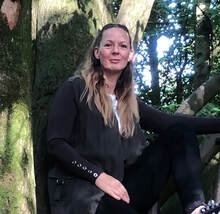 Back in July I was invited to go along to the Emergence Foundation weekend event called Regenerating Culture: What are the Drivers of Change? This weekend of co-creation in the beautiful Kent countryside was set to explore, reflect and engage in regenerating culture through mind, body and soul, at a time of global crisis. The two-day event consisted of many presentations by invited speakers, group discussions, embodied movement, and grantee-led workshops. There was also time for networking, nature walks, and wild swimming. I could write about many of the inspiring people I met, or the wonderful presentations or the people who run the Emergence Foundation however something emerged for me personally so I thought I would share this rather than attempt to provide a blog on what was a very full and rich two days. I have been taught about and am aware of the importance of self care so I organised everything I needed. There was an option to book a glamping tent, all I needed to do was arrive and there would be a bed and a tent ready. I took great care to pack what I needed and set off in plenty of time to miss the rush hour traffic. All was well in the world. I had taken great care of myself. Saturday. the weather shifted from warm and dry to cold and wet. After a long day I finally returned to my glamping tent to find it sides sagging but nothing that a few pulls on the guide ropes would not fix! Or so I thought! Sunday. Having survived a collapsing tent, thanks in no small part to the organisers who found me a warm room I went on with the plans to attend what was to be the event of the weekend – a joint Akido and Dance Workshop. I observed others moving their bodies, taking up space whilst my body begged me to go and sit down. It had been a long night. But I am not one for sitting down when everyone else is standing. I had planned to be at this workshop and I was not about to leave. The workshop ended, the weekend ended. It was time to go home. It had been an amazing weekend full of so many inspiring talks and workshops and shared stories and yet I was feeling dreadful, tired, exhausted, in pain, and frustrated. I had tried to take great care of myself. As I sat there in the corner of the large dimly lit barn, a small quiet voice, one which I had been unaware of before, emerged: “Do not make a fuss…” “Do not stand out…” “Do not be loud…” “Do not take up space…” “Do not ask for help…” “Do not have needs…” “Do not upset the flow…” “Do not attract attention…” The voice went on and on, each admonition prefaced by the words ‘Do Not’. A voice emerged that weekend, a voice I can now hear if I listen carefully. Rather than ignore it, I now take care to listen to what it has to say. I am listening small and not so quiet voice…let’s have some conversations…
0 Comments
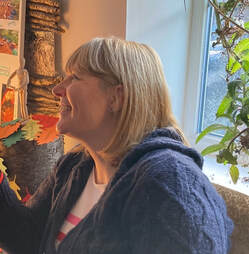 Rachel Hudson-Bain Rachel Hudson-Bain Change: Doing it or letting it happen with Ivo Mencsh on Saturday, 22 July 2023 (Emergence Foundation Summer Event) After an introduction and a few slides Ivo Mencsh* asked us what our goal was. I found this question difficult and had an automatic negative response to it, thinking, I don’t have a specific goal I want to reach in terms of achieving something in life, I just want to know inner freedom. At the time I couldn’t see that this is a goal. We were then asked to pair up and ask each other two different questions repeatedly for seven minutes, paying attention to images, sensations and emotions. The first question was: what are you doing or not doing that keeps you from going where you want to be? I found my resistance to this was quite strong; I was tired, it was the end of the day, I really didn’t want to do this. So I told my workshop partner how I was feeling instead of following my default behaviour of ‘let’s pretend all is well and feign enthusiasm’! Her response seemed to be relief and it felt like her ‘let’s pretend’ barrier fell away too. As a result of my honesty and of just being how I was, regardless of my perceived expectations, I found that I was able to connect more with myself and with my partner. She kept asking me that same question: “What are you doing or not doing that keeps you from where you want to be?” and I found that my mind was coming up with all sorts of reasons; fear, negativity, hiding, distracting myself, so on and so on for 7 minutes. Towards the end of the exercise I found that my mind was running out of reasons why, to the point that my answer was, I don’t know, and my body felt more at ease and my overall demeanour was more relaxed. We all came back together and gave feedback on our experiences before being given a second question: 'What’s good about being just where you are?' As question one had helped my mind come to an end of itself, I felt very connected to my body, very chilled out and calm. My responses reflected this connection and I was very accepting and content about being just where I was. There was no frustration of not being where I wanted to be, no thoughts or beliefs blocking me or holding me back, I was in fact experiencing my ‘goal’ of inner freedom, which then led me to realise that perhaps inner freedom is always there, it’s just a case of quietening the mind, going deeper and connecting with it, connecting with me, connecting with what is. If I had listened to my mind I wouldn’t have gone to the workshop: I’m too tired. I could have done as it suggested and opted out of the work in pairs: that’s asking too much. I could have pretended I was fine: I’m supposed to have energy and enthusiasm. Thankfully I listened to a deeper internal yearning, a freer part of me that is quite frankly sick and tired of playing the game of let’s pretend I’m feeling something I’m not because I believe it’s more acceptable. I love the connection this honesty brought me, between my partner and me, to myself, and to something deeper. * Ivo Memsch, Associate Director of Emergence and Insight at Perspectiva In May this year the big room cic hosted its 4th Authentic Artist workshop with Kath Burlinson.
We are delighted to announce that Kath has organised the very first northern Authentic Artist Asylum (AAA) for Saturday, 16 September from 10am to 5pm. AAA days are a key way for those who have attended an AA workshop to stay connected with their artistry and an artistic community/family. They are a chance to share work/ideas or just be in the AA space together. The hope is that this event will be the start of a self-generating ‘northern AAC hub’. This event is open to invitees (ie, those who have not attended an AA workshop) - a few people have expressed curiosity about the Authentic Artist Collective and attending a workshop. If this is you now is your chance to find out more. Contact either Owen or Hayley (@thebigroom.org) for more information. On 22/23 July 2023 the Emergence Foundation held an event to celebrate the final round of grants. The event was both an ending and an opening… to what next? We (the big room cic) look forward to finding out what that will be.
You can find out more about the Emergence Foundation here. And links to the two opening speakers Esther Stanford-Xosei, who amongst her many roles is a Reparations Specialist and Decolonial Pan-Africanist Jurisconsultant and Community Advocate and Agamemnon Otero Director & CEO of Energy Garden, Co-founder of Repowering London, Brixton Energy, and Community Energy England. The vision and commitment of both speakers say much about the Emergence Foundation and what it stands for. Emergence Foundation funded the Eldership in the Community project and are holding an exciting summer event on July 22nd - 23rd at the Quadrangle in Kent.
It will be a great opportunity to engage with other like-minded people. There are bursaries available and a limited number of free admissions for under 25’s. There are 3 complementary places for beneficiaries of the Eldership in the Community programme. If you were a programme beneficiary and would like to attend contact us at the big room. Here is the link: https://emergencefoundation.org/ Join us at the big room cic (Macclesfield/Cheshire) for this half day event facilitated by Milan Bijelić.
Milan is a facilitator affiliated with CFOR (Force for Change) and brings first-hand experience of conflict resolution in Croatia and Rwanda. He will be joined (via zoom) by our five guest speakers who will be sharing their experience of eldership. The subjects covered will include reconciliation and community building (Innocent Musore - Rwanda), women in politics (Vassiliki Katrivanou - Greece), safe space dialogues and immigration (Tariq Bashire - UK), supporting wellbeing in the LGBT community (Ellis Beardsmore - Scotland), post-war reconciliation and community building (Tanja Radocaj - Belarus). There will be an opportunity to ask questions and meet those who have signed-up to the 9 month programme and hear about the local community projects they will be working on over the course of the programme. These include:
The opening event can be attended virtually or in person. Book your free ticket on eventbrite. The words 'elder' and 'eldership' hold many different cultural connotations. Ingrid Rose, PhD, Faculty Member at the Process Work Institute, Portland, Oregon talks about eldership within the context of process work and the role of the elder in community. About this interview... during this interview several terms are referred to in relationship to ‘eldership’ within the context of process work. A comprehensive glossary of process work terms can be found here. The terms used in the video are:
My son ran into the front room to tell the adults who were looking after him that a helicopter had landed in the garden. He was excited, he wanted them to come and see. He was 6 years old. Knowing that children are prone to fantasy and that helicopters did not land in gardens - certainly not theirs - they did not share his excitement. Knowing what they knew… meant they didn’t have to look. At some point in our lives most of us have experienced what it is like not to be believed. Having our experience invalidated and with it a sense of who we are is painful. A moment of excommunication which can only be lifted by denying our experience and falling into line with the mainstream consensus reality. When those moments run into countless moments the result is confusion, doubt and an intolerable sense of pain. 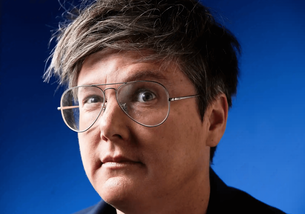 In her recently published book, the comedian, Hannah Gadsby recounts what it was like growing up in a world that insisted that what she was experiencing wasn’t what she was experiencing. In speaking about her neurodiversity in an article in the Guardian Gadsby writes, ‘It was difficult to believe that I wasn’t entirely to blame for my life being such a painful struggle, because I was so used to assuming I was a bad person.’ But perhaps the most telling line in the article in reference to her ‘difference,’ is the last, ‘…but I wouldn’t change it for the world, because I believe communities need thinkers like me.’ The adults looking after my son never did see the helicopter in the back garden. Perhaps if they had their world and ours would be the richer for it. Read Hannah Gadsby's article When someone asks me (Owen) about Eldership in the Community I can find myself caught in a log jam of words, thoughts and a where to begin. The following extract from Dr Stephen Schuitevoerder not only avoids that log jam it also addresses the complex relationship between eldership, leadership and followership... "How many times have we wished for wise leaders who are able to not only express themselves well but also make skilful decisions in each moment of their work? How often have we placed hope in a leader, dreaming that they will take the direction we have been waiting for, only to be disappointed by one poor choice or another? Leading skilfully is challenging.
All of us who have had the fortune of leading, and it is many of us at this moment in one way or another, whether as CEO of an organization or leader of a rock band know of the challenges of leading. It’s the complex task of juggling different pressures, opposing needs and directions, competing visions and limited resources and capacity. What we hope for in others, we struggle with in ourselves. And yet more than ever we need leaders, not just those who can lead but those who can lead skilfully, with wisdom, insight and awareness. Leaders who inspire others as much by what they do as to who they are. Leaders who can weave skilfully between complex demands in such a way that competing concerns are recognized and addressed. Leaders who are more than leaders, who are elders. This developing of eldership seems to have little to do with position, wise leaders can emerge at surprising places in systems and organizations and often lead as elders in spite of their lower positional authority. Eldership also seems to have little to do with age, wise leadership can as be as easily young as old. This book (The cultivation of the elder: the development of wisdom in leadership) is about this very development. It is a step by step pathway in developing greater awareness, of ourselves and others around us. And in this its about how we might cultivate eldership, and work as elders to become more skilful, become wiser, through insight into the complex activities and decisions we make each day, so that those who follow can tread more easily and learn from our modelling. But this book is also about followers, it’s about the moments when a person in leadership disappoints us, it’s about our own ability to respond at this moment and how we can choose to ‘lead’ from a lower positional authority. It’s about the fluidity of leadership, and how we might each work in our own way with our own eldership irrespective of the positional rank we might have. The role of elder at times is the overt leader of a system, but need not be the designated leader of a system. Eldership and wisdom can emerge from any position, and with this emergence lead through its wisdom. And the role of elder is not fixed, it shifts between people, at one moment this wisdom resides with one person and at another moment the wisdom shifts to another. It’s in the field or group, waiting for expression and finding its next most likely inhabitant." Book available on Dr Stephen Schuitevoerder's website In October 2021 we held the last of the three pilot workshops for the Eldership in the Community programme. It can be difficult to explain what it is like to experience eldership so we have left that to those who attended these three half-day sessions. You can view these interviews on our Youtube Channel. In January 2022 we were awarded a full grant from the Emergence Foundation to run a 9 month programme on Eldership in the Community. Our thanks to all those who attended the pilot programme and to the generosity of the Emergence Foundation. If you think that this programme would be something you and your community could benefit from we would love to hear from you. Deadline for applications is the 2nd April 2022 though we recommend early registration as places are limited. |
AuthorPosts are sourced, written and curated by members of the big room cic Archives
October 2023
Categories
All
|
|
the big room cic | reg 12009089 | reg in england & wales | registered office: wood street mill, 45 pickford street, macclesfield, cheshire, sk11 6hb
|
designed by the big room cic © copyright 2019. all rights reserved.
|
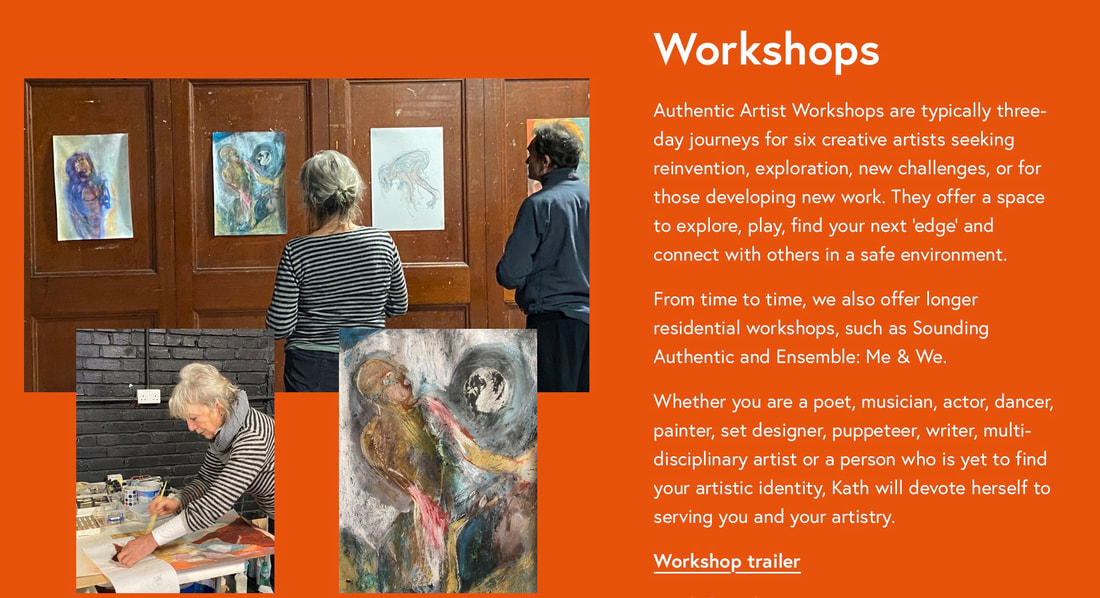
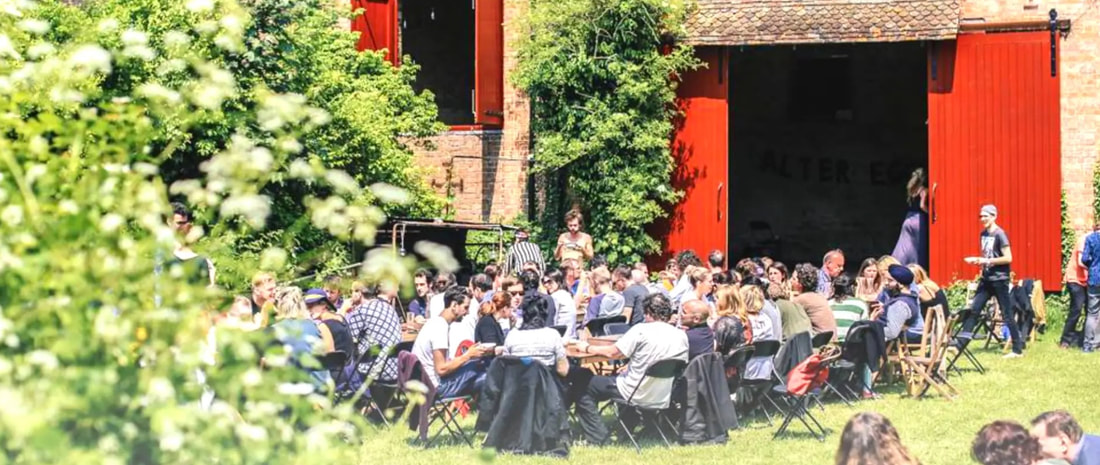
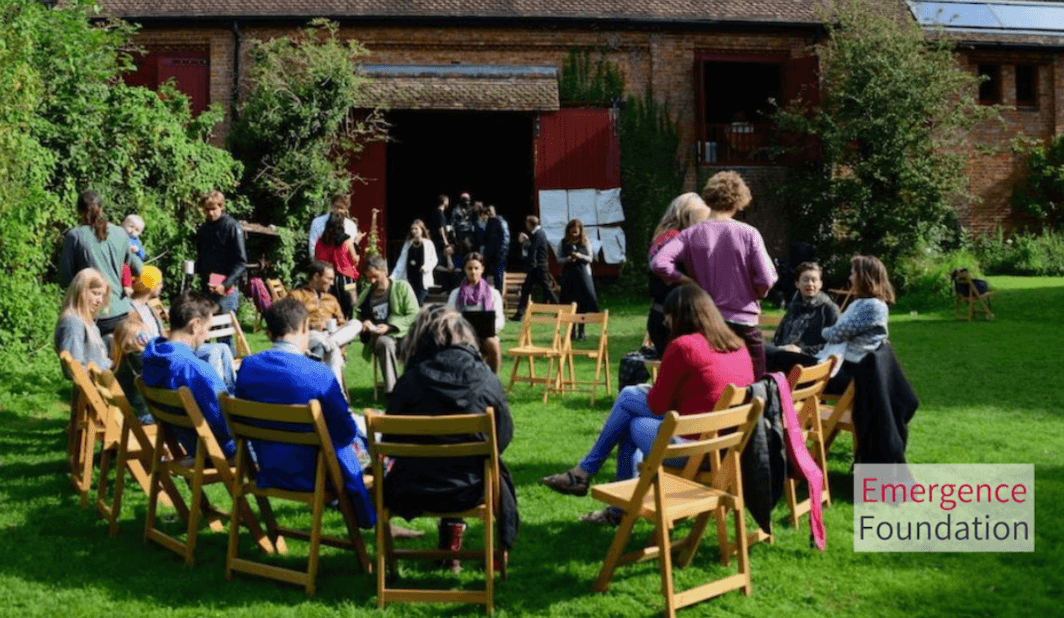
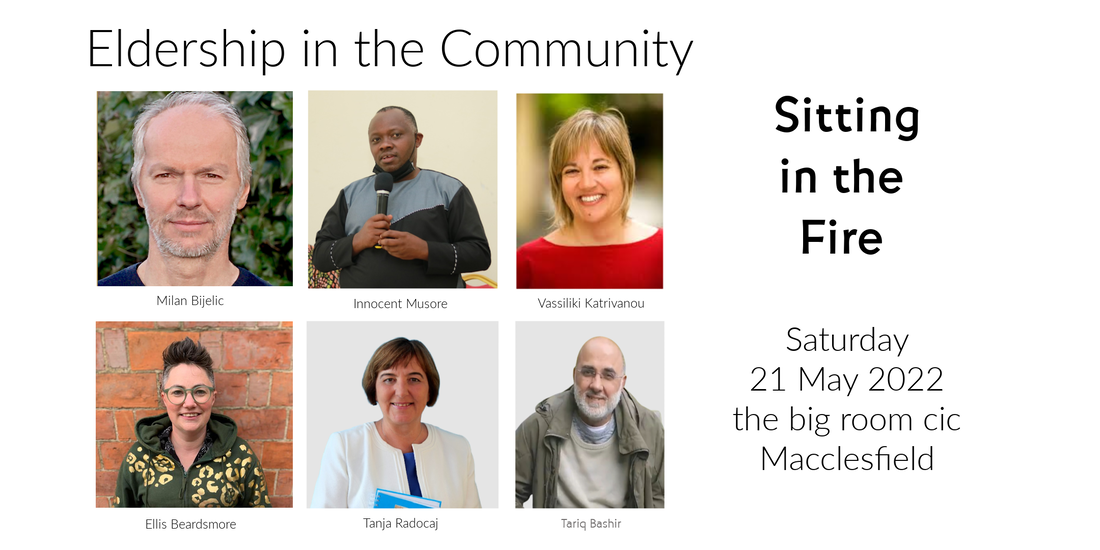

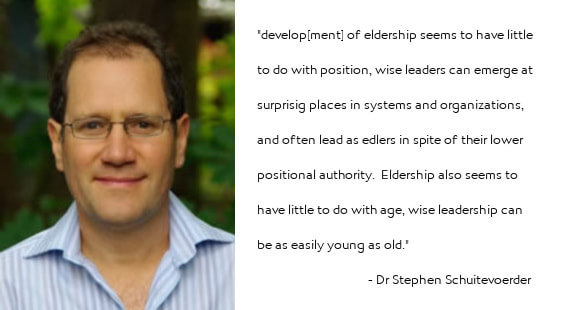
 RSS Feed
RSS Feed